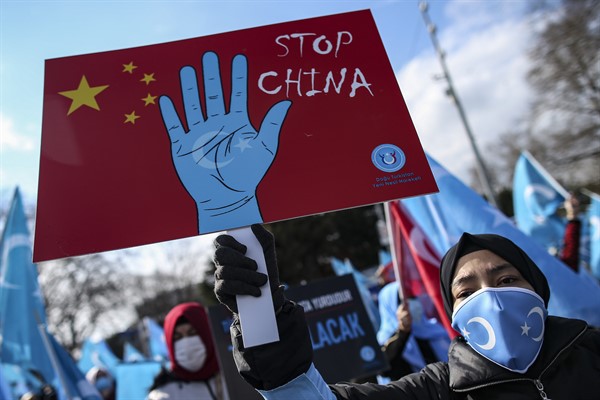There is extensive evidence that the Chinese government is violating the human rights of ethnic Uyghurs, and that these violations include crimes against humanity and genocide. Satellite imagery, testimonials, demographic data and photographs substantiate the extensive allegations against China, which include the use of mass surveillance technologies throughout Xinjiang province, the arbitrary detention of more than 1 million Uyghurs and other Turkic Muslims, the torture and inhumane treatment of detainees, the separation of children from their parents, systematic sterilization, rape, forced labor and organ harvesting.
While survivors, relatives and diaspora communities have long sought to draw attention to the systematic and widespread violence in Xinjiang, states, multilateral organizations, corporations and many civil society groups have only recently begun considering their response to these grave violations. For more than a year, much of the public debate on China’s treatment of Uyghurs has focused not on what can be done in the face of such brutality, but how that brutality should be described: Is this a genocide or not? Concrete efforts to end the violence—or even meaningful debates on what those efforts should look like—have been harder to spot.
For advocates like me who work on preventing and responding to genocide and crimes against humanity, this is a familiar state of affairs, and one that raises important questions. Ever since the Holocaust, advocates have invoked the world’s promise that genocide would happen “never again” to mobilize international attention and action. But does securing official determinations that a mass atrocity is a genocide actually lead to constructive policy responses? If not, at a time when political attention to foreign policy is in retreat all over the world, these campaigns may not be the most effective use of our finite resources.

